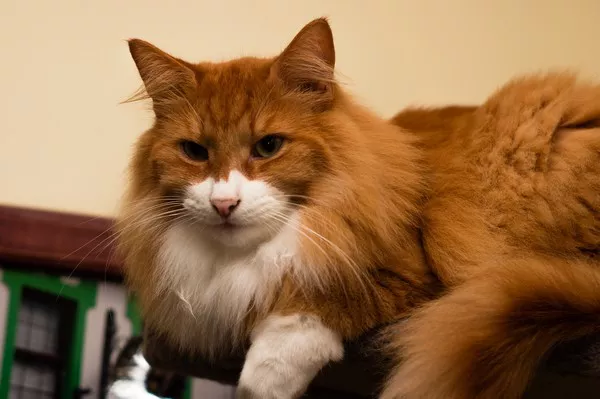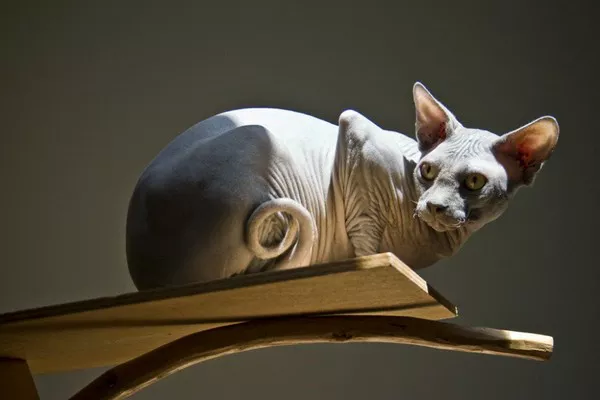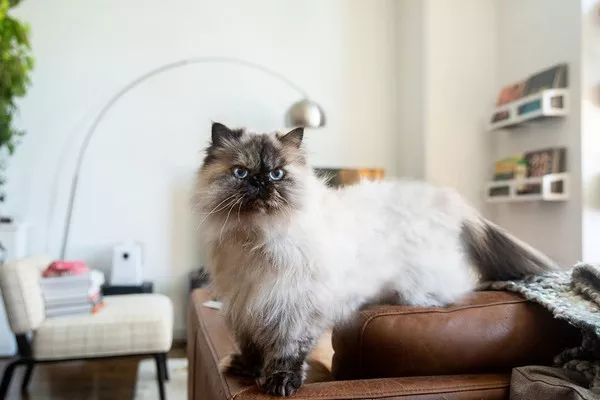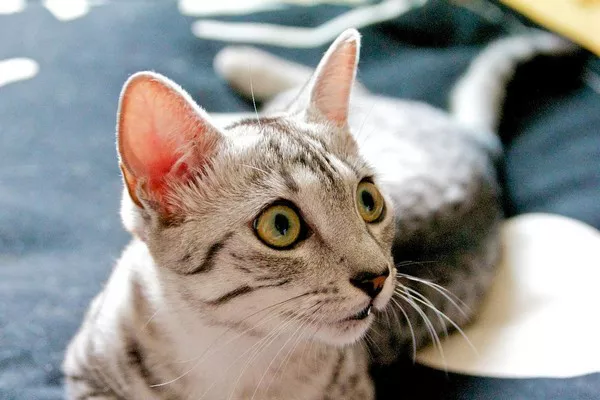Cats are known for their peculiar behaviors, and one that often leaves pet owners intrigued is the habit of licking their paws after a meal. While it may seem like a harmless quirk, this behavior can reveal fascinating insights into a cat‘s instincts, health, and overall well-being. In this comprehensive guide, we’ll explore the various reasons why cats engage in post-meal paw licking and what it signifies about their physical and emotional state.
Instinctual Cleaning: A Cat’s Inborn Behavior
To understand why cats lick their paws after eating, it’s essential to delve into their evolutionary and instinctual roots. Cats are meticulous groomers by nature, and this behavior has been ingrained in their DNA over thousands of years. In the wild, a cat’s survival often depended on maintaining impeccable hygiene to avoid attracting predators with the scent of prey or masking their own odor to stalk prey effectively.
This grooming instinct is carried into domestic life, and cats take it seriously. They spend a significant portion of their waking hours grooming themselves, and this meticulous cleaning extends to their paws. After a meal, a cat may feel compelled to clean any food residue from its paws, similar to how it would clean its face or body.
1. Removing Food Odor:
One primary reason cats lick their paws after eating is to remove the scent of food. In the wild, a cat’s territory and hunting success relied on remaining inconspicuous to both prey and potential competitors. By licking away food odors, a cat helps maintain a low profile and reduces the risk of alerting other animals to its presence.
2. Ensuring Cleanliness:
Cats are naturally clean animals, and they prefer not to have foreign substances, such as food particles or dirt, on their paws. Post-meal paw licking is a way for cats to ensure their paws remain clean and free of any debris that might interfere with their sensitive tactile abilities or get lodged in their fur.
3. Promoting Digestion:
Another intriguing reason for this behavior could be related to digestion. Some experts believe that licking their paws after eating helps stimulate the digestive process. The act of grooming may trigger specific nerve receptors in the tongue and mouth, indirectly supporting digestion. While more research is needed in this area, it’s a plausible theory.
4. Self-Soothing Mechanism:
Cats often engage in grooming as a form of self-soothing. After a satisfying meal, grooming, including paw licking, can have a calming effect on cats. It’s a way for them to relax and unwind, similar to how humans may engage in self-care routines.
5. Habit and Routine:
Routine plays a significant role in a cat’s life. If a cat has developed the habit of licking its paws after eating, it may continue to do so simply out of routine, even if there is no particular reason to clean its paws.
6. Dental Health:
Occasionally, cats may lick their paws after eating to dislodge food particles stuck in their teeth. While this behavior is more commonly associated with grooming their faces, some cats extend it to their paws as well.
7. Medical Reasons:
In some cases, excessive paw licking after meals could indicate underlying health issues. Cats may engage in over-grooming behaviors due to allergies, skin irritations, or gastrointestinal discomfort. If you notice that your cat’s paw licking is excessive, leading to skin irritation or hair loss, it’s essential to consult with a veterinarian to rule out any underlying medical conditions.
Observing Your Cat’s Behavior: What to Look For
While post-meal paw licking is generally a harmless and instinctual behavior, it’s essential to pay attention to your cat’s overall well-being. Here are some key observations to make:
Frequency: Consider how often your cat licks its paws after meals. Occasional post-meal grooming is normal, but excessive and obsessive paw licking could signal an issue.
Changes in Behavior: If you notice any significant changes in your cat’s behavior, such as increased agitation or discomfort during or after eating, it’s essential to consult with a veterinarian.
Physical Symptoms: Keep an eye on your cat’s paws for signs of irritation or hair loss due to excessive licking. Skin issues could indicate underlying allergies or sensitivities.
Diet and Allergies: Evaluate your cat’s diet and consider whether allergies or sensitivities to certain ingredients could be contributing to paw licking.
Conclusion: Understanding Your Feline Companion
Cats are complex creatures with a rich tapestry of behaviors. While the act of licking their paws after eating may seem trivial, it’s an integral part of their grooming and self-care routine. By understanding the reasons behind this behavior, pet owners can gain deeper insights into their feline companions and ensure their overall health and happiness.
Keep in mind that, in most cases, post-meal paw licking is a natural and harmless habit. However, vigilant observation and regular veterinary check-ups are essential to ensure your cat’s well-being and detect any underlying issues that may require attention. Your cat’s comfort and health should always be a top priority in your role as a responsible and caring pet owner.



























